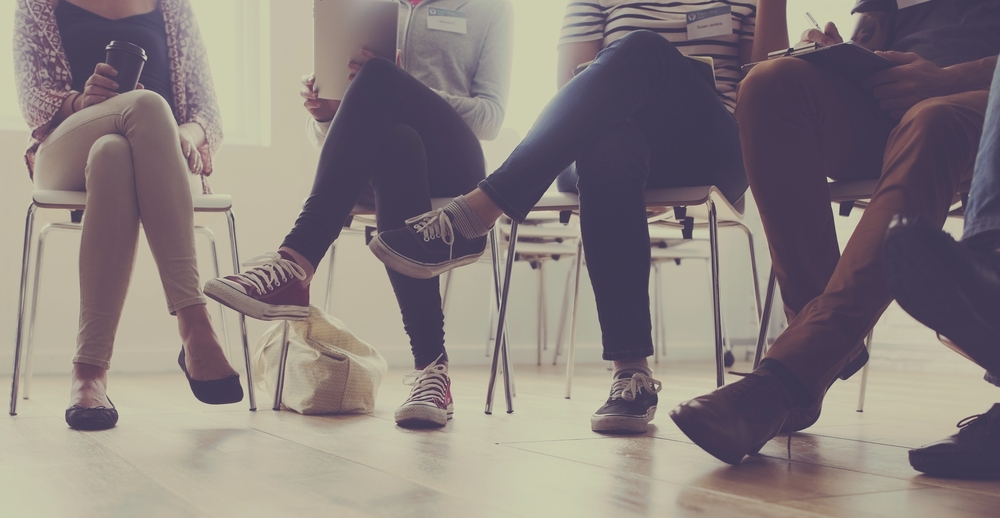Attending My First Ankylosing Spondylitis Meetup
Written by |

I was anxious as I walked into my first ankylosing spondylitis meetup, sponsored by the Spondylitis Association of America. I had no idea what type of people would be there or the severity of their disease. I worried that I’d be too young or too old, or too mobile, and that I wouldn’t fit in. I feared I didn’t deserve to be there, and thought I should just suck it up and deal with my AS because it could be so much worse.
I’m currently on medication that seems to work most of the time. I still deal with extreme fatigue and pain, as well as brain fog, but it’s nowhere near the level it used to be before medicating and managing my stress. Because of this, I worried that being in that room would be an insult to anyone else “truly” suffering.
But I had to remind myself that suffering is relative — we all have our bleak days and our good ones, too; that the medicine we take leaves doors open for fatal infections or cancers; and that managing a lifelong, incurable, and degenerative disease — no matter whether you’re feeling good or bad — is worthy of support, compassion, and community.
Community — that’s the one thing I’d been missing. What is community to a person with AS? As I learned from my meeting, it’s many things. It’s validation. It’s perspective. It’s tricks for management. In that room, I met people who were truly down and out — and people who’d taken to diet to nearly put their AS into remission. I met people who were longing for friends in the AS community and to just hear the words, “You’re not crazy.”
The moderator, who also has AS, facilitated a great discussion and made sure everyone had the chance to speak.
I tried to be vocal, to at least connect as much as I could without oversharing or taking up too much space. My boyfriend accompanied me and encouraged me to speak up, so I asked the group about how they manage social pressures (like when we cancel plans because of a flare-up or sickness) and the disintegration of friendships (because people don’t really “get” chronic illness).
Most of them had notable advice ranging from, “Force yourself to go out and have fun, because you’re always going to be sick, but you’re not always going to get invites,” to, “Practice self-care and put yourself first.”
The best advice about nixing friends who can’t understand or have compassion for my illness (or who get mad when I cancel plans), came from the moderator herself, who brilliantly said:
“I already manage enough: a job, a family, and my sickness. I don’t need to manage your emotions around my illness, too.”
I thought that was succinct and perfect. And she was right. However sad, harsh, or cynical it may sound, it’s actually the perfect sound bite. There’s already so much burden on us. The future is so unclear. The pain can be so debilitating. Why let someone else who doesn’t have the capacity for compassion make you feel worse?
In the end, I walked away feeling empowered, inspired, and heard. We all want to be seen. If it takes one day each month to do that for myself and ignore the little voice that says, “You aren’t sick enough to be in a support group,” I’ll definitely continue to go to these AS meetings.
You can find one here.
***
Note: Ankylosing Spondylitis News is strictly a news and information website about the disease. It does not provide medical advice, diagnosis, or treatment. This content is not intended to be a substitute for professional medical advice, diagnosis, or treatment. Always seek the advice of your physician or other qualified health provider with any questions you may have regarding a medical condition. Never disregard professional medical advice or delay in seeking it because of something you have read on this website. The opinions expressed in this column are not those of Ankylosing Spondylitis News, or its parent company, Bionews Services, and are intended to spark discussion about issues pertaining to ankylosing spondylitis.






Leave a comment
Fill in the required fields to post. Your email address will not be published.